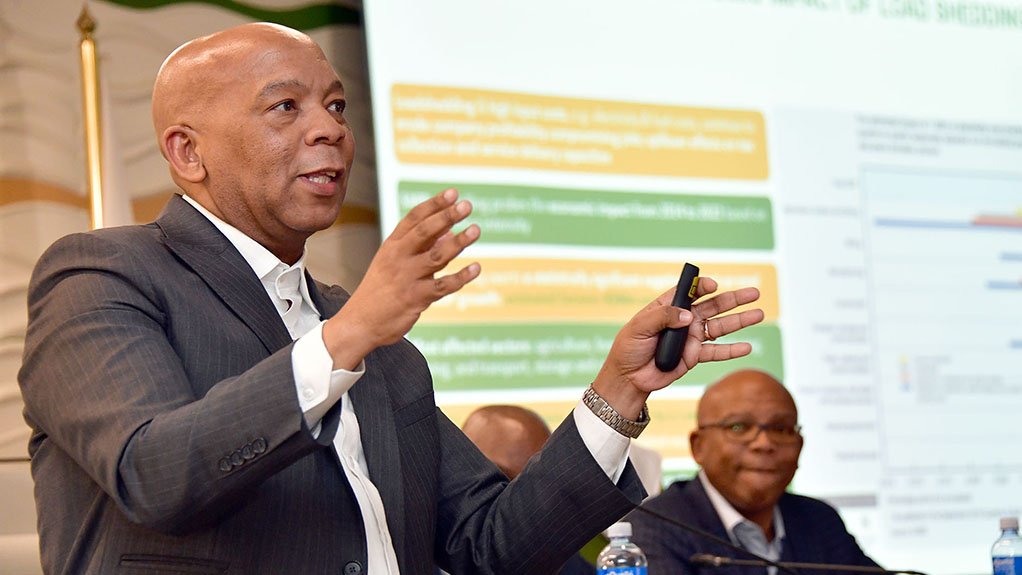The South African government will publish a request for proposals (RFP) for 2 500 MW of new nuclear capacity by March 2024, following the National Energy Regulator of South Africa’s (Nersa’s) concurrence with a procurement determination published in 2020.
Nersa’s concurrence, which was provided on September 2, had been conditional on the Department of Mineral Resources and Energy (DMRE) meeting several suspensive conditions, including establishing, through a demand and generation profile analysis, the rationality of adding 2 500 MW of nuclear, and confirmation that engineering, procurement and construction contract principles would be used during the procurement phase.
Electricity Minister Kgosientsho Ramokgopa said the DMRE made a submission to Nersa in July outlining how it had gone about meeting the conditions and that the regulator had considered the submission in August before concurring with the determination.
Nersa’s concurrence, together with the Ministerial determination, would be published in an upcoming Government Gazette.
He also confirmed government’s intention to move ahead with an open tender for new nuclear. This, despite acknowledging that no new nuclear could be built before the mid-2030s, implying that the technology could play no immediate role in ending the country’s prevailing loadshedding crisis.
The decision to proceed was made on the basis of the prevailing Integrated Resource Plan of 2019 (IRP 2019), which makes no specific allocation for nuclear but stipulates only that any nuclear build programme be implemented at a pace and scale that the country can afford.
The RFP would also be launched ahead of the finalisation of the so-called IRP 2023, which was approved for release for public consultation by Cabinet on December 8.
The draft IRP 2023 was expected to be Gazetted this week, but it was not yet clear what comment period would be provided or whether the public consultations would include public hearings.
The document reportedly includes two time horizons, with the horizon to 2030 still unlikely to include new nuclear, but Ramokgopa indicated that nuclear was included in the document, probably for the 2031 to 2050 horizon.
He said the decision to proceed with the RFP was based on the fact that nuclear procurement involved long timeframes and it was, thus, necessary to prepare years in advance to avoid “stop/start” procurement.
DMRE deputy director-general for nuclear Zizamele Mbambo said that a new nuclear build was likely to take between 10 to 12 years from the initiation of procurement to commercial operation. In many instances globally, however, the period has been far longer.
Mbambo said the RFP had not been finalised and the technologies that would be considered, as well as the contracting model, were also yet to be determined.
However, he indicated that both conventional and small-scale reactor technologies could be included and that government’s intention was to open it to all nuclear vendors.
He refused to be drawn on whether Russia’s Rosatom would be considered given the sanctions that had been implemented against Russia following its invasion of Ukraine in 2022.
However, in its recent approval of a proposed investment partnership between PetroSA and GazpromBank Africa for the restart of PetroSA’s gas-to-liquids refinery in Mossel Bay, Cabinet described the secondary sanctions threat as low.
Various questions were posed to the Minister about the business case for new nuclear and its affordability, but only historical tariffs arising from Koeberg, which has been in operation for nearly 40 years, were provided, together with a wide capital-expenditure range of between $2 100/kW and $7 500/kW.
Southern African Faith Communities' Environment Institute and Earthlife Africa amplified these affordability and business-case concerns, noting that “all the independent modelling shows that nuclear energy is neither affordable nor needed in our energy mix now or in the future”.
The two organisations also questioned the timing of the announcement ahead of the finalisation of the IRP2023.
“What is the rush? Since nuclear energy plants take decades to build, would it not be better to ensure that it is in fact the right thing to do for the country, before we seek to commit? We have not seen proof that this new announcement for more nuclear energy is being done at a pace and scale that the country can afford.”
EMAIL THIS ARTICLE SAVE THIS ARTICLE ARTICLE ENQUIRY
To subscribe email subscriptions@creamermedia.co.za or click here
To advertise email advertising@creamermedia.co.za or click here











